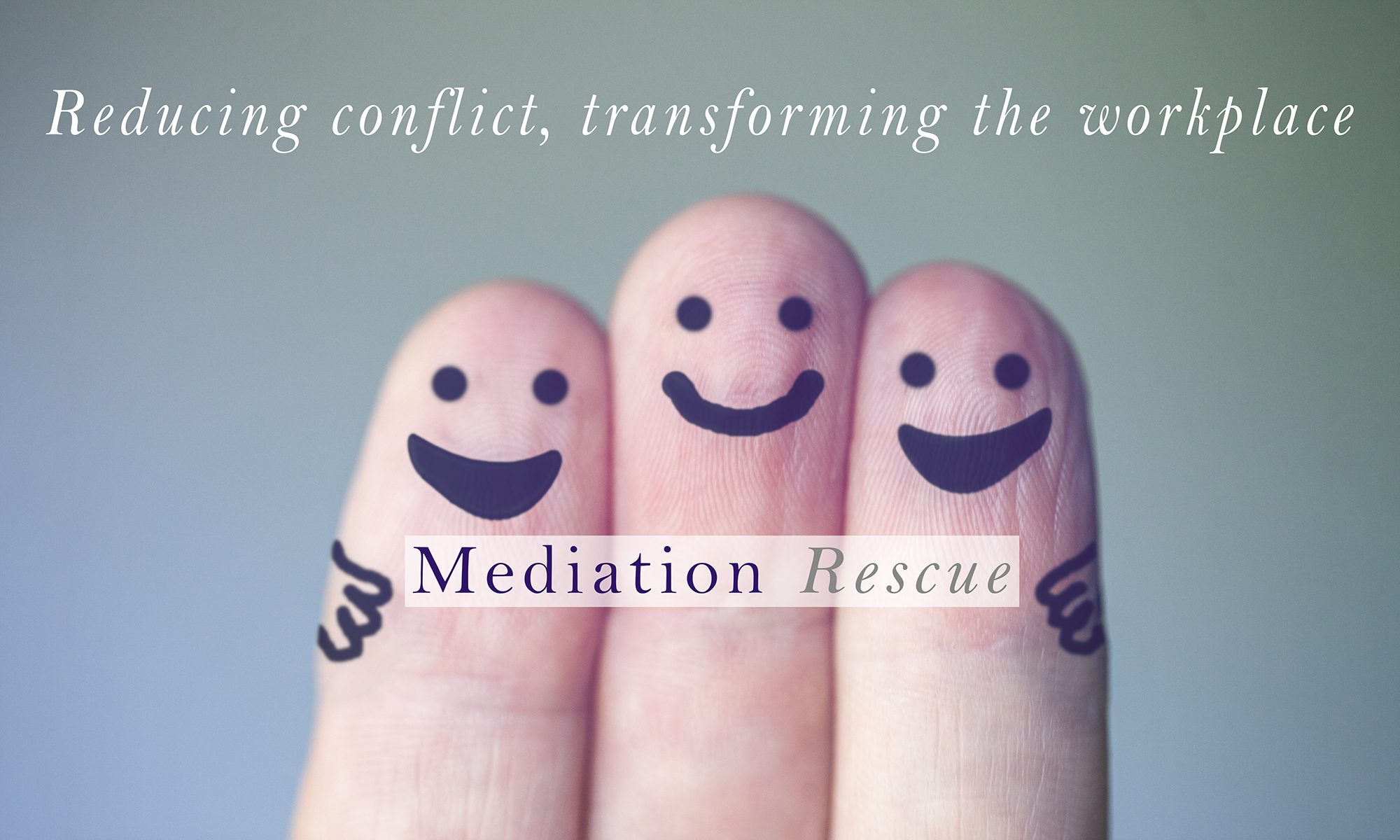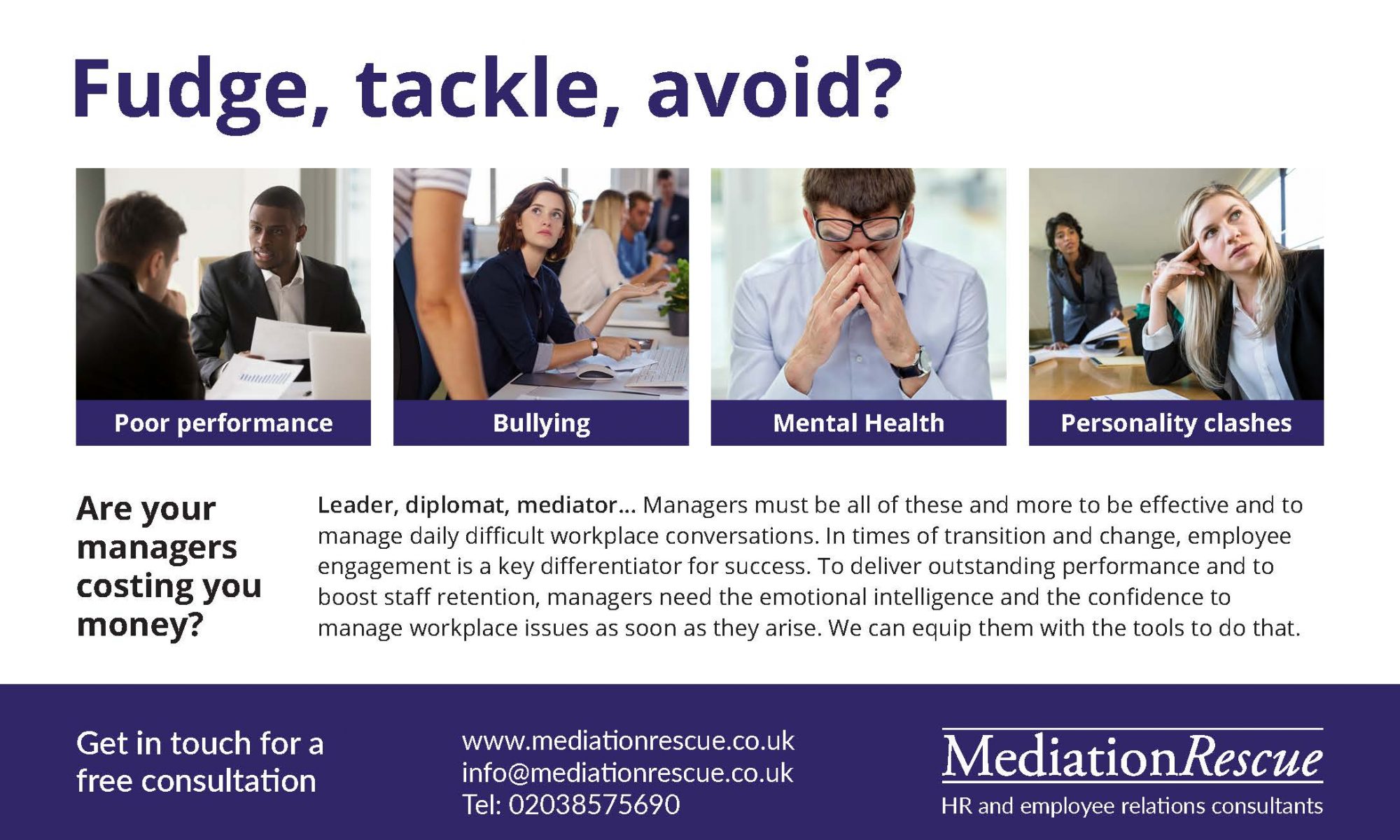Workplace conflict is inevitable and takes many forms, from subtle, passive aggressive undermining, through a whole spectrum of behaviours up to full-on verbal or even physical confrontation.
How well do you manage those different types of conflict where you work? How well do those around you manage their conflict? When you spot a potential issue do you roll your sleeves up and tackle it head on or are you more inclined to fudge it in some way without really resolving the problem or do you avoid dealing with it, hoping the problem will resolve itself?
Whichever approach you take, if you are honest with yourself, the chances are that you feel you could do better and should try to find more effective resolutions. You have probably received a lot of training as to how to do your job. It is less likely that you or your colleagues have had much targeted training in how to manage conflict in your working relationships or in the relationships of those around you, whether direct reports, your co-workers or even your bosses.
There are a number of core skills that you will need to master to manage workplace conflict better:
- Active Listening – so much more than just listening, it is a vital skill that can really transform your work and personal relationships.
- Curious Questioning -not interrogation, but asking open explorative questions
- Validating – learning the importance of making people feel that they have been heard and acknowledged.
- Empathy – building rapport and trust without having to sympathise
- Using and Interpreting Body Language to transform the course of a conversation
- Reframing – discovering the value of being able to feed back, to summarise and to take the emotion out of what is being said.
- Picking Your Battles – sometimes it is best to just let things go.
- Defusion – the critical importance of knowing when and how to de-escalate a situation.
- Early Engagement – the importance of not allowing things to fester or to go unchallenged.
- Resolving not just solving – there is a real difference between bringing a situation to an end and really resolving the underlying problem in a long-term and effective way.
The benefits of well-managed conflict are enormous and extend far beyond better morale and improved employee retention. They include enhanced productivity and massive costs savings from fewer formal processes such as grievances or disciplinaries.
These are not just vital workplace skills either, they are amazing life skills that you can carry into every aspect of your life.

